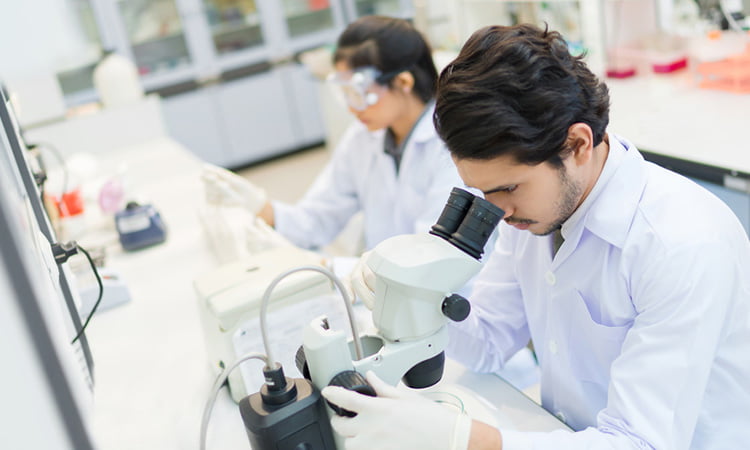UK government to invest £8.4 million into COVID-19 immunology research
Posted: 1 September 2020 | Victoria Rees (Drug Target Review) | No comments yet
The UK government will invest £8.4 million in COVID-19 research projects to reveal more information that can be used to develop therapies and vaccines against the disease.


The UK government has announced it is investing £8.4 million in COVID-19 immunology research projects across the UK, including at the Universities of Edinburgh, Glasgow and Dundee. According to the government, this is the biggest ever contribution to COVID-19 immunology research in the UK.
Three new UK-wide studies will receive funding from UK Research and Innovation (UKRI) and the National Institute for Health Research (NIHR) to understand immune responses to COVID-19. It is hoped these studies will improve the treatment of patients and inform the development of vaccines and therapies.
The Scottish universities are taking part in the largest study, the UK Coronavirus Immunology Consortium, which will receive £6.5 million and bring together leading immunologists from 17 UK universities. The University of Edinburgh is also involved in another study.
Dr Christopher Lucas at the University of Edinburgh, will lead a study on the key features of fatal COVID-19 and the impact the virus has upon the lungs and other vital organs. Using authorised hospital post-mortem examinations of patients who have died from COVID-19, this study will provide a unique opportunity for expert clinicians and scientists to study the whole body in a level of detail that is not possible during life.
“We have learned so much from COVID-19 patients during the past six months. However, there is only so much that we can learn from clinical examinations and blood tests. By having a deeper look at those who have died from COVID-19 through post-mortem examination, we will increase our understanding of what is happening to the body in the most severe cases of this disease. Critically, this will allow us to rapidly answer key clinical questions and help inform the care of patients and the development of new treatments,” Dr Lucas said.
The UK Coronavirus Immunology Consortium will investigate key questions including how long immunity from COVID-19 lasts and why some patient’s immune systems are better able to fight off the virus.
According to the researchers, better understanding of these immune responses, particularly the T-cell response, could provide targets for new therapies to treat COVID-19 and inform the efforts to develop a vaccine.
The project will use samples and data from major UK COVID-19 projects already underway, funded by UKRI and NIHR.
Professor Massimo Palmarini, Director of the Medical Research Council-University of Glasgow Centre for Virus Research (CVR) said: “My colleagues and I at the CVR are extremely proud to be involved in the UK-CIC consortium and are grateful to UKRI and NIHR for the generous funding support. It is now more important than ever that the immunology community work together, as we aim to address important, unanswered questions about SARS-CoV-2 as we move through this pandemic.”
Related topics
Disease research, Drug Targets, Funding, government, Immunology, Research & Development, Therapeutics, Vaccine
Related conditions
Coronavirus, Covid-19
Related organisations
Edinburgh University, National Institute for Health Research (NIHR), UK Coronavirus Immunology Consortium, UK Research and Innovation (UKRI), UKRI’s Medical Research Council (MRC), University of Dundee, University of Glasgow
Related people
Dr Christopher Lucas, Professor Massimo Palmarini



